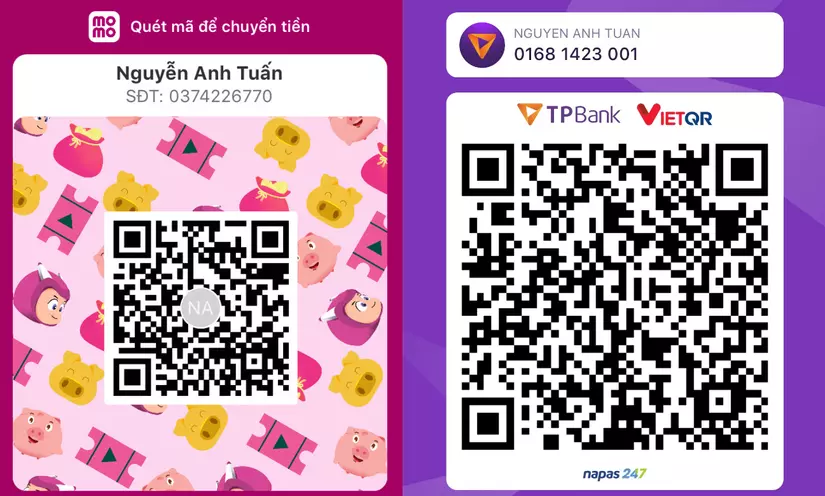🔐Rate Limiting and Throttling to Prevent Denial-of-Service (DoS) Attacks in Node.js Express
Bài đăng này đã không được cập nhật trong 2 năm
Introduction to DoS Attacks and the Need for Rate Limiting
Denial-of-Service (DoS) attacks aim to make a server or network resource unavailable to its intended users, usually by overwhelming it with requests. As Node.js Express is a popular framework for building web applications, it is crucial to implement safeguards against these attacks. One effective way to prevent DoS attacks is by using rate limiting and throttling.
Rate Limiting and Throttling Concepts
What is Rate Limiting?
Rate limiting is the process of controlling the rate at which clients can make requests to a server. This technique helps to ensure that the server can handle requests efficiently without being overwhelmed. Rate limiting is usually implemented using various algorithms, such as token bucket, leaky bucket, or fixed window.
What is Throttling?
Throttling, on the other hand, is the process of limiting the number of requests a client can send over a specified time period. The primary purpose of throttling is to control the consumption of resources on the server-side, ensuring that no single client can monopolize them.
Implementing Rate Limiting in Node.js Express
Using Express-Rate-Limiter Middleware
One of the easiest ways to implement rate limiting in Node.js Express is by using the express-rate-limiter middleware. To get started, install the package using the following command:
npm install express-rate-limiter
Next, import the package and create an instance of the rate limiter:
const rateLimit = require('express-rate-limiter');
const limiter = rateLimit({
windowMs: 15 * 60 * 1000, // 15 minutes
max: 100, // limit each IP to 100 requests per windowMs
});
Finally, apply the limiter middleware to your Express application:
app.use(limiter);
Custom Rate Limiting Implementation
If you want more control over the rate limiting process, you can implement your own custom rate limiting middleware:
const rateLimiter = (req, res, next) => {
// Your custom rate limiting logic
};
app.use(rateLimiter);
In this custom middleware, you can implement various rate limiting algorithms, such as the token bucket, leaky bucket, or fixed window.
Implementing Throttling in Node.js Express
Using Express-Slow-Down Middleware
One way to implement throttling in Node.js Express is by using theexpress-slow-down middleware. To get started, install the package using the following command:
npm install express-slow-down
Next, import the package and create an instance of the throttling middleware:
const slowDown = require('express-slow-down');
const speedLimiter = slowDown({
windowMs: 15 * 60 * 1000, // 15 minutes
delayAfter: 100, // allow 100 requests per 15 minutes, then...
delayMs: 500, // begin adding 500ms of delay per request above 100
});
Finally, apply the throttling middleware to your Express application:
app.use(speedLimiter);
Custom Throttling Implementation
You can also implement your own custom throttling middleware:
const throttlingMiddleware = (req, res, next) => {
// Your custom throttling logic
};
app.use(throttlingMiddleware);
In this custom middleware, you can implement various throttling techniques, such as using the sliding window log, exponential back off, or other custom algorithms.
Combining Rate Limiting and Throttling
In some cases, it is beneficial to use both rate limiting and throttling to protect your Node.js Express application from DoS attacks. By combining these techniques, you can create a more robust defense mechanism against various types of attacks. To implement both, you can simply use the express-rate-limiter and express-slow-down middlewares together:
app.use(limiter); // Rate limiting middleware
app.use(speedLimiter); // Throttling middleware
Alternatively, you can create custom middleware that combines both rate limiting and throttling logic:
const combinedMiddleware = (req, res, next) => {
// Your custom rate limiting logic
// Your custom throttling logic
};
app.use(combinedMiddleware);
Additional Security Measures
While rate limiting and throttling are effective at preventing DoS attacks, it is also important to consider other security measures to further protect your Node.js Express application. Some additional techniques include:
Content Security Policy (CSP)
CSP is a security feature that helps prevent cross-site scripting (XSS) and other code injection attacks. It allows you to specify which sources of content are allowed to be loaded by a web page.
Helmet
Helmet is a collection of middleware functions that help secure Express applications by setting various HTTP headers. Helmet can help protect your app from some well-kknown web vulnerabilities by setting the appropriate headers.
Data Validation and Sanitization
Validating and sanitizing user input is crucial to prevent various types of attacks, such as SQL injection or XSS. Use validation and sanitization libraries, like express-validator or validator.js, to ensure that user input is properly checked before being processed by your application.
Secure Password Storage
Storing user passwords securely is critical to protect user data from unauthorized access. Use strong hashing algorithms, such as bcrypt or Argon2, to hash passwords before storing them in your database.
Conclusion
Rate limiting and throttling are essential techniques to prevent DoS attacks in Node.js Express applications. By using middleware like express-rate-limiter and express-slow-down, you can easily implement these safeguards in your app. Additionally, you can create custom rate limiting and throttling middleware to fine-tune your defense mechanisms. Don't forget to implement other security measures, such as CSP, Helmet, data validation and sanitization, and secure password storage, to further protect your application from various types of attacks.
Mình hy vọng bạn thích bài viết này và học thêm được điều gì đó mới.
Donate mình một ly cafe hoặc 1 cây bút bi để mình có thêm động lực cho ra nhiều bài viết hay và chất lượng hơn trong tương lai nhé. À mà nếu bạn có bất kỳ câu hỏi nào thì đừng ngại comment hoặc liên hệ mình qua: Zalo - 0374226770 hoặc Facebook. Mình xin cảm ơn.
Momo: NGUYỄN ANH TUẤN - 0374226770
TPBank: NGUYỄN ANH TUẤN - 0374226770 (hoặc 01681423001)
All rights reserved
